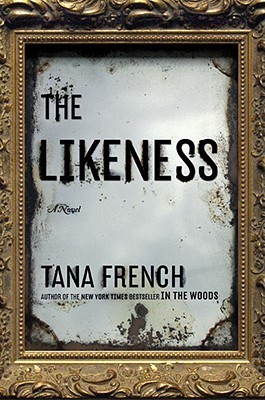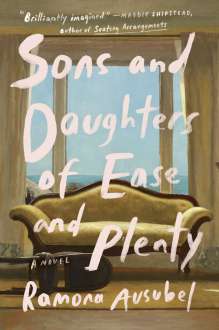 I’m a bit behind the pack in reading Simon Morden’s novel Down Station (2015). I’m not sure I’m going to stay on board for its sequel, The White City, published in 2016, but there are a lot of very good things about this London fantasy novel.
I’m a bit behind the pack in reading Simon Morden’s novel Down Station (2015). I’m not sure I’m going to stay on board for its sequel, The White City, published in 2016, but there are a lot of very good things about this London fantasy novel.
1: It isn’t about London. It starts there, in the Underground, with cleaners and maintenance workers, but then there is a Voyage of the Dawn Treader moment in which a portal into another world opens out of nowhere. It’s an escape from utter terror rather than a cosy living-room, and the protagonists fall into a strange sea.
2: It’s super-realist and beguilingly fantastical at the same time. The protagonists only have their underwear, boots and bright orange Underground maintenance overalls, but the land they’ve arrived in – called Down, though the portal called Down Station – is where buildings grow, magic can be learned, shape-shifting happens, and there are no stars, only an impossibly ginormous moon. I love the juxtaposition of the two modes, and Morden writes convincingly.
3: The explanations for the way Down works are almost science-based, and don’t rely on an evil mage, or a magic orb of power, or a long-lost hidden prince, or a curse. There are no prophecies or quests or faeries, thank goodness. This is ecofantasy working at a very high standard for internal logic.
4: One of the two lead protagonists is Dalip, an engineering student, an attractively earnest hero. The other, Mary, is stonkingly good, though with a limited range of expletives. She’s a stroppy teenager, without much interest in her femininity, which is so refreshing. These two of the small number of characters power the plot and hold all our attention. For these two alone I’d read the sequel.
5: Their antagonists are splendidly original, and true to the plot, which is about making a fresh start to life directly connected to one’s true nature. The darkness in some people’s souls breeds monsters, and there are some spectacularly good ones here.
On the other hand, there are some irritating aspects:
6: The mundanity of the party’s progress, heading through the strange magic-filled land, finding out how it works and how to survive, battling monsters and collecting useful weapons and prizes, is a bit too D&D for me. Role-playing games are about the journey, whereas a novel is about the story that the plot unfolds, beginning, middle and end, and there is a worrying smell of dungeon-master’s plotting about this novel.
7: If Dalip the good boy is worrying about the state of his underwear without any chance for a wash, how are the female characters managing with their periods? Or is the impossibly huge moon stopping the flow? Have they all coincided into amenorrhoea? Teenage girls cannot avoid the undisguisable monthly blood flow unless they’re too thin, which we’ve not been told Mary is. If the other characters’ concerns include a complete lack of baths, hairwashes, laundry, even toilet paper, dealing with periods needs to be part of that. Admit that you know where babies come from, and deal with it. Think through the problems, do the research, or ask a friend.
8: Why did Morden put some characters in the plot, and then forget about them? Mary, Dalip and Stanislav get whole chapters of lines and action, and undergo huge character arcs. Mama is forgotten until mother figure or fat woman jokes are needed, or some pathos about her babies needing her. Luiza and Elena are far too often described as ‘the two Romanian women’, and Elena doesn’t even have a line to say. Grace appears during the escape as an afterthought, then disappears completely. This is astonishingly unbalanced, and unsatisfactory to read. Perhaps Morden was saving Grace and Elena for a big showdown reveal in book 2, but it looks more like he simply forgot them, and had to patch in a few ‘Where’s Grace?’ and ‘We’ll have to go and find her’ lines to cover up when he was reading the proofs.
So I’m almost convinced, but I don’t think I’m convinced enough.
Simon Morden, Down Station (2015 Gollancz), ISBN 978-1-473-21146-9, £8.99
Advertisements Share this:





